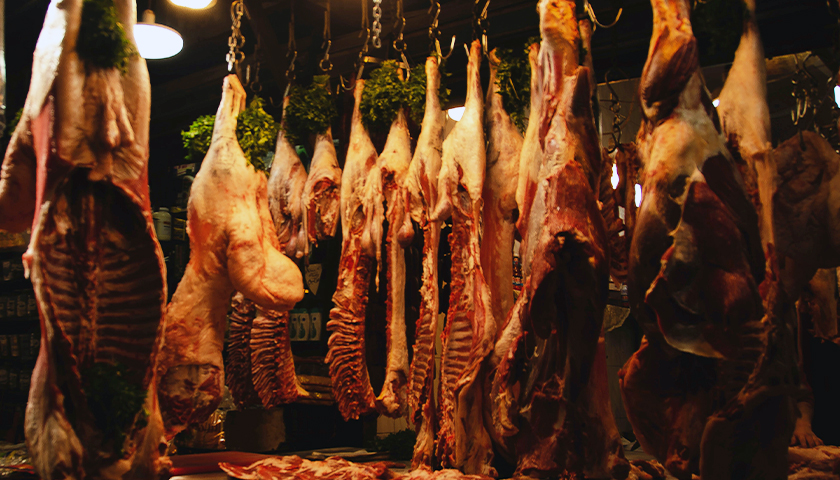by Mary Stroka
The Biden Administration announced Monday it will spend $1 billion in American Rescue Plan Act funds to increase independent meat and poultry processing capacity.
The administration will invest $375 million on independent processing plant projects that fill a need for diversified processing capacity, spend up to $275 million in working with lenders to increase availability of loans, particularly to underserved communities, for independent processors, and spend $100 million to back private lenders investing in independently owned food processing and distribution infrastructure to move product through supply chain.
It will spend and additional $100 million to support training, safe workplaces and jobs in meat and poultry processing facilities, $100 million in reducing overtime and holiday inspection costs for small and very small processing plants, and $50 million to provide independent business owners and producers with technical assistance and research and development.
President Joe Biden, U.S. Agriculture Secretary Tom Vilsack and Attorney General Merrick Garland spoke with meatpacking industry members in a virtual meeting Monday regarding changes and funding provisions.
“The system that exists today is broken and especially harmful to small and medium-sized producers,” Iowa Farm Bureau President Brent Johnson, who attended the meeting, said in a public statement. “We are grateful for the administration’s attention to this issue that impacts not only farmers’ profitability and rural vitality, but also affects consumers at the grocery store. We must work toward a more stable, resilient food supply chain that can better endure unforeseen challenges and ensure farmers are paid an honest price for their product.”
The Biden Administration said in the funding announcement that 50 beef slaughter plants owned by “just a handful” of companies process nearly all the cattle in the United States, and that lower processing capacity decreases prices for producers and increases prices for consumers.
“When COVID-19 or other disasters such as fires or cyberattacks shutter a plant, many ranchers have no other place to take their animals,” the fact sheet said. “Our overreliance on just a handful of giant processors leaves us all vulnerable, with any disruptions at these bottlenecks rippling throughout our food system.”
Cargill Inc, Tyson Foods, JBS USA and National Beef Packing Co belong to The North American Meat Institute. Institute spokeswoman Sarah Little said prices for cattle producers have rebounded since the COVID-19 pandemic hit in 2020, prompting meatpacking plants to close, and they’re now approaching record highs and a shortage of labor force, which the independent companies will also face, Des Moines Register reported.
Iowa Attorney General Tom Miller said in a Monday news release that robust competition in meat processing benefits livestock producers and consumers. Miller was among 16 states’ attorneys general who wrote Vilsack a letter expressing their concerns about increasing concentration in meatpacking and making recommendations for strengthening enforcement under the Packers and Stockyards Act of 1921. The purpose behind the act was to address “unfair, deceptive and anti-competitive” practices in the industry, but corporate consolidation has reduced competition since then, as the top four beef packers and pork processors, which held around 30% of the market around 1977, control 85% and 70%, respectively, of the market, as of 2018. Consolidations have weakened prices, driven away producers, and reduced the number of livestock farms and ranches, the release said.
The Cattle Contract Library Act of 2021, which would make publicly available information on contracts packers offer to producers for purchasing cattle, passed the U.S. House of Representatives Dec. 8. U.S. Rep. Ashley Hinson, R-IA-1, and U.S. Rep. Mariannette Miller-Meeks, R-IA-2, are co-sponsors. U.S. Senators Chuck Grassley and Joni Ernst, Iowa Republicans, introduced a similar bill: The Cattle Price Discovery and Transparency Act.
“Iowa is a national leader in livestock production and processing, and it’s critical that there’s competition and price transparency, and that our livestock producers get paid a fair price for what they produce,” Iowa Department of Agriculture and Land Stewardship Secretary Mike Naig told The Center Square. “Congress should act quickly to take up the bipartisan transparency legislation led by our Iowa delegation.”
– – –
Mary Stroka contributes to The Center Square.





